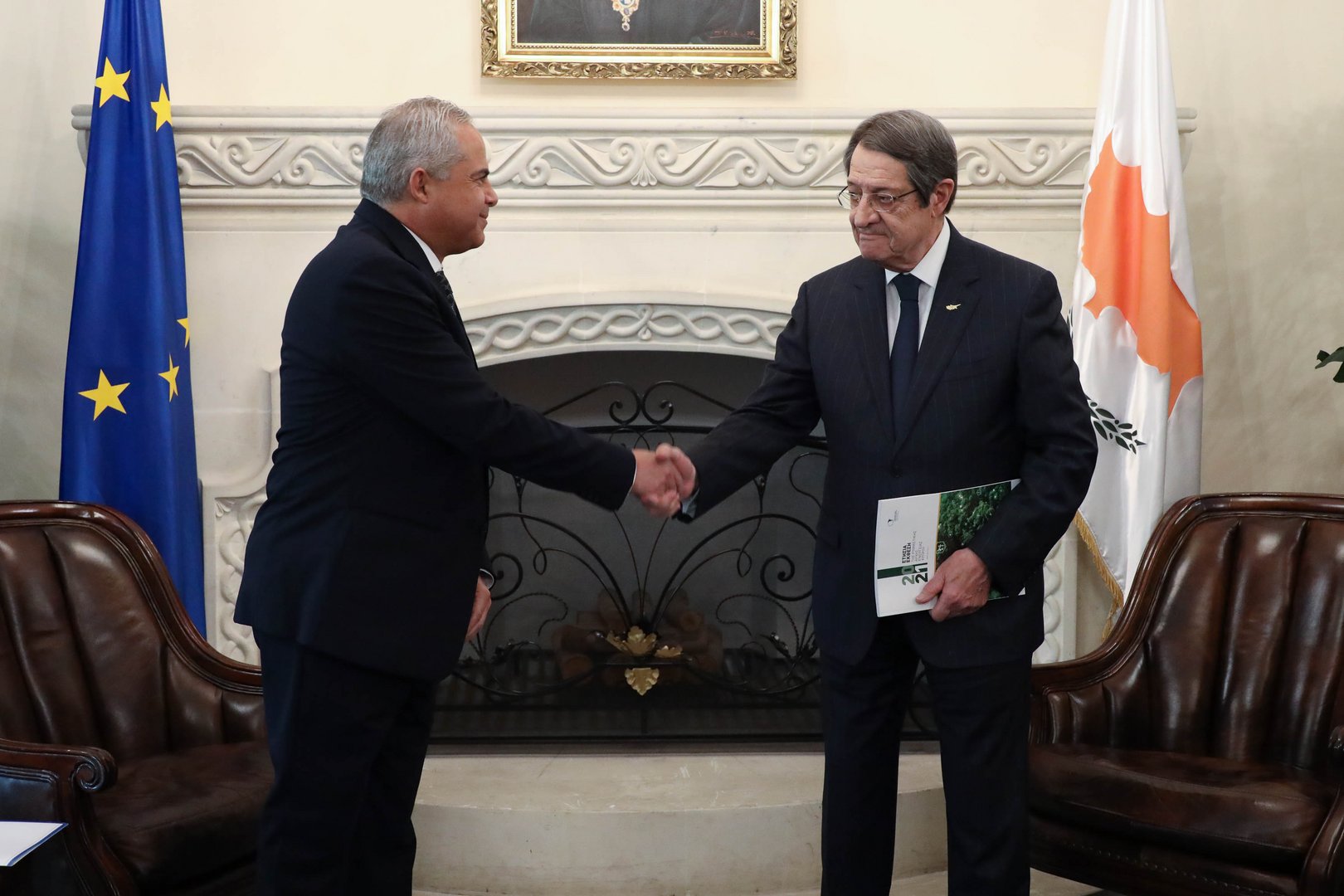The Cyprus Energy Regulatory Authority (Cera) on Wednesday delivered its report for 2021 to President Nicos Anastasiades saying the island’s electricity market is looking forward to the future despite the difficulties.
“2021 was a peculiar year,” chairman of Cera’s board of directors Andreas Poullikkas said. “With the recovery from the pandemic, natural gas prices in Europe have increased, as have the prices of greenhouse gas emission allowances, which is why there has been an increase in electricity tariffs.”
This year was much more difficult with the war in Ukraine, which has led Europe is in an energy crisis, specifically a natural gas crisis, he added.
Despite this, the Cypriot electricity market “is experiencing a taste of the future,” with a higher penetration of renewable electricity sources in the market.
In Cyprus today, approximately 380 megawatts of photovoltaic systems, 157 megawatts of wind systems and 13 megawatts of biomass systems are in operation, amounting to a total installed RES capacity of 550 megawatts and a total installed capacity of conventional power generation units of approximately 1500 megawatts – double the figures recorded in 2018.
Nevertheless, Poullikkas said that “the power grid has almost reached its limits,” pointing out that upgrades to substations and transmission lines are necessary to accommodate more renewable energy.
He also recalled Cera’s relevant regulatory decision to redesign the energy production and storage system to make it bidirectional and intelligent, saying that storage systems with European interconnections are a step in the right direction.
Regarding the competitive electricity market, Poullikkas said that all the work has been completed.
He added that natural gas prices have hiked up oil prices as well, noting that Cera is monitoring the decisions of the European Council and the measures it recommends.
Anastasiades said that the tariff policy in Cyprus is better than other European countries even though the costs are high, noting that it is important to see how it accelerates the liberalisation of the market, which depends on strengthening the electricity grid and storage systems.
He pointed out the need to speed up everything required for licensing and the other tools that will contribute to reducing energy prices, and underlined that the government has done its part in reducing fuel taxation.
The president added that efforts should be focused on how to contribute to the relief of vulnerable groups, a direction also taken by the European Council.
Calling the Eurasia interconnector “revolutionary”, he said that when implemented in 2027, it will end Cyprus’ energy isolation.







Click here to change your cookie preferences